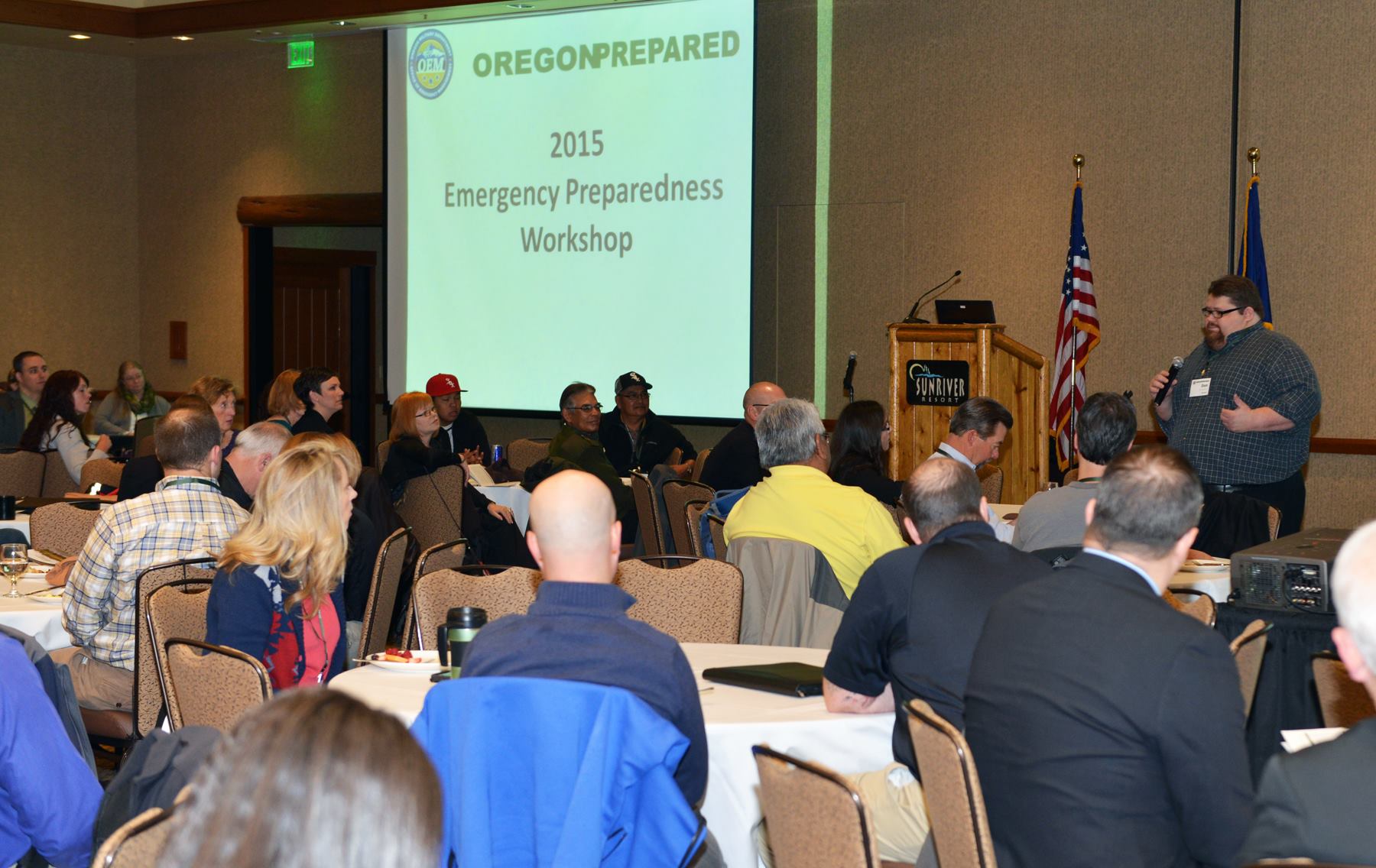SUNRIVER, OR -- More than 250 disaster preparedness officials from city, tribal and non-profit agencies around the state converged on Sunriver this week. Andrew Phelps, Director of Oregon’s Office of Emergency Management, says the 2nd annual "Oregon Prepared" workshop was a chance for leaders to address threats and hazards specific to each region, and statewide - especially in rural areas where emergency management is often only one person. "Local jurisdictions don’t always have the resources, the capabilities or the training to handle every emergency that they might have. You can look at 9/11 as a perfect example – there’s no city that’s more prepared for a catastrophic event than New York, and they were completely overwhelmed. So, you can look at a community like Bend and realize that a big raging wildfire, Bend Fire and Deschutes County fire resources aren’t necessarily going to be able to deal with that. So, making sure that we can coordinate with state entities and federal resources to come to these communities and mitigate the damage."
Phelps says a big focus this week was on developing the "Cascadia Playbook" - a plan that would guide jurisdictions in the first 14 days after a catastrophic event, like a large coastal earthquake. "Working with folks in the Cascade region – Central Oregon, and even along the eastern side of Oregon – to build partnerships so that we can share resources, because we know a lot of the resources are going to be out on the coast. But, also prepare those communities for the influx of folks leaving the tsunami inundation zone. A lot of them are going to end up in the valley, but that’ll get overwhelmed as well. So, you’ll have folks coming as far east as Bend and Redmond." He says the Redmond airport is already designated as a staging area for federal resources during a disaster, until those resources can be directed elsewhere.
He says other agencies are already learning from Central Oregon’s example. "One of the big components of reducing the impact of disasters is mitigation planning. The Deschutes County Emergency Manager Nathan Garibay just completed the Deschutes County Hazard Mitigation plan, and a component of that is looking at all hazards. It’s not just wildfire, but flooding, snowstorms, severe weather, things like that – things we can do to reduce the impact of these hazards." He says planning is key to moving forward after an event. "We can’t eliminate all hazards, we just can’t. But, we can prevent those hazards from becoming disasters."




